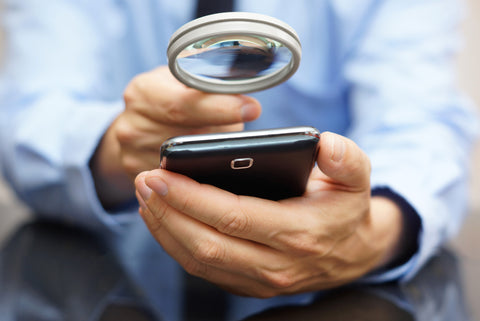
Did you know your mobile phone is continually emitting radiation even when it’s just sitting in your pocket? How much radiation does your phone emit? Learn more about safety regulations regarding radiation limits and how safe your phone really is!

Did you know your mobile phone is continually emitting radiation even when it’s just sitting in your pocket? How much radiation does your phone emit? Learn more about safety regulations regarding radiation limits and how safe your phone really is!

What are your options? Infertility is a common problem that affects 1 in 25 men. Learn more about treatments for infertility!
If a couple has failed to achieve pregnancy after a year of unprotected intercourse, both the man and woman should be evaluated. While female infertility may be hinted at by irregular periods, male infertility is not shown up by any specific symptom. Hormonal imbalances may sometimes be suspected if the man has abnormal hair growth, low libido or other signs of sexual dysfunction. But more often than not, male infertility is diagnosed after a sperm test that has been ordered when the couple are having problems conceiving.
The diagnostic process starts with a physical examination at which the doctor will also take a full medical history. The physical exam is often an uncomfortable experience as the doctor examines the penis, scrotum, testicles, anus and rectum. An orchidometer is used to measure testicular volume, which is closely associated with sperm and hormone levels.
Male infertility is rising worldwide, but this rise is not inevitable as many of the factors causing it can be reversed with lifestyle changes or medication. This includes causes such as obesity, drug, alcohol and tobacco use, some prescription medications and intensive horse riding, motorcycling or bicycling.
If only cell phones didn’t emit radiation they would be the perfect technology. They have radically improved our communications, and are changing our lives. But unfortunately, the radiation issue is one we cannot sensibly ignore. Scientific research is clear that the microwaves cell phones produce are harmful. And although this is inconvenient, the consequences of ignoring the science are dire.
The traditional response to anyone who is worried about the health risks of using a cell phone is to advise them to use a Bluetooth headset. Bluetooth is safer, the argument goes, because it avoids exposing your brain to the harmful radiation your cell phone produces. But what is the science behind this claim? Is it based on rigorous research?
What is a Specific Absorption Rate (SAR) in relation to cell phones, and what difference does it actually make?
You have probably heard the warnings that talking too much on your cell phone can cause brain cancer. Maybe you took them seriously, and maybe you didn’t. After all, the threat seems remote, everyone else uses their phone day in and day out, and when you put your phone down after a conversation you don’t actually feel ill. So the warnings are easy to dismiss.
Nearly 15% of couples of reproductive age face fertility issues. The causes of these issues vary greatly from genetic to environmental, but one of the most common is also one of the most surprising; it sits unremarked in your pocket, keeps you connected to the world, and would appear to be completely harmless.